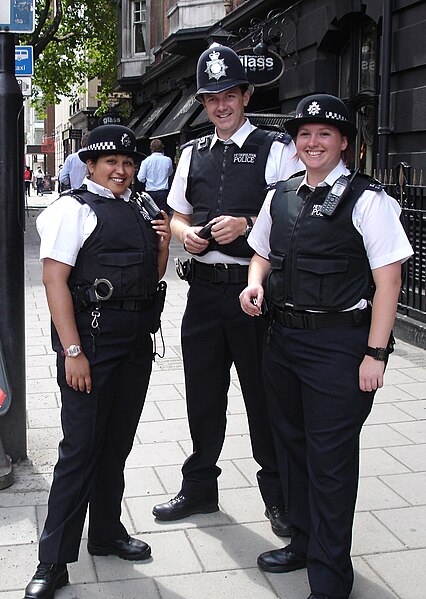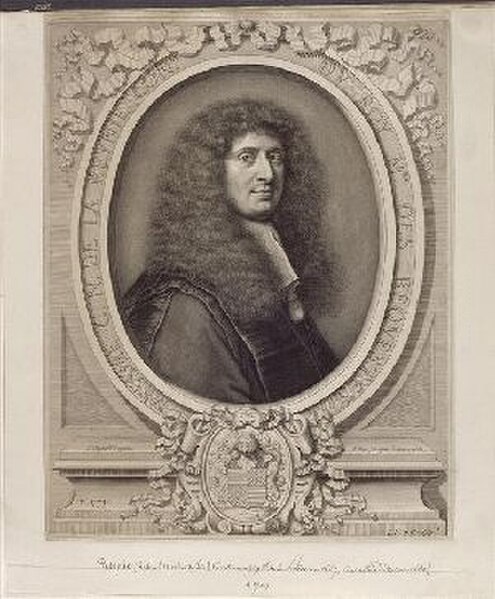A police officer is a warranted law employee of a police force. In most countries, "police officer" is a generic term not specifying a particular rank. In some, the use of the rank "officer" is legally reserved for military personnel.
Metropolitan Police officers in London
A Hokkaido Prefectural Police officer conducting a routine inspection in Ashibetsu.
New York City Police Department (NYPD) officers conversing with other officers in a police car.
Atlanta Police SWAT (special weapons and tactics) officers overseeing a demonstration during the George Floyd protests.
The police are a constituted body of persons empowered by a state, with the aim to enforce the law, protect public order, and the public itself. This commonly includes ensuring the safety, health, and possessions of citizens, and to prevent crime and civil disorder. Their lawful powers encompass arrest and the use of force legitimized by the state via the monopoly on violence. The term is most commonly associated with the police forces of a sovereign state that are authorized to exercise the police power of that state within a defined legal or territorial area of responsibility. Police forces are often defined as being separate from the military and other organizations involved in the defense of the state against foreign aggressors; however, gendarmerie are military units charged with civil policing. Police forces are usually public sector services, funded through taxes.

German State Police officer in Hamburg, with the rank of Polizeihauptmeister mit Zulage ("police chief master with upgraded pay")
The Santas Hermandades of medieval Spain were formed to protect pilgrims on the Camino de Santiago.
Gabriel Nicolas de la Reynie, founder of the Prefecture of Police, the first uniformed police force in the world
Patrick Colquhoun, founder of the Thames River Police








